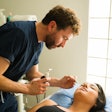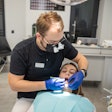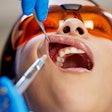
For dental practitioners who administer propofol (Diprivan) on a regular basis, this past year has been a challenging one. There has been an ongoing shortage of propofol for more than a year, and the situation has yet to improve to any significant degree.
So what happened? A series of factors rendered one of the most preferred and widely used anesthetics in medicine virtually unobtainable, setting off a domino effect of shortages of drugs used in lieu of propofol.
"It's about as close to an ideal agent as we can get for general anesthesia, especially in dentistry and outpatient dental surgery," said Kenneth K. Lee, DDS, a Los Angeles practitioner who has written about the propofol shortage (Pulse, Fall 2010, Vol. 43:4-5, pp. 2-4). "There aren't too many good alternatives for it."
The situation has left many practitioners in a difficult position, according to Joel Weaver, DDS, PhD, an emeritus professor of anesthesiology at the Ohio State University (OSU) College of Dentistry. "It's a real shame that we try to do the best for our patients and we can't use the best drugs because they aren't available," he said.
In fact, the shortage has changed the way many dentists and oral surgeons operate, Dr. Lee noted. "A lot of practitioners have had to go back to the things they did 10 or 15 years ago," he said. "Longer-acting drugs were used, resulting in an increased recovery time for the patient. So instead of seeing 10 patients per day, we may only be able to see nine. I'm sure some doctors have canceled cases."
The way practices and hospitals order drugs has been disturbed as well. "Previously, we had our supply and when it dwindled we would reorder," Dr. Lee explained. "I can order today and they will probably say there's a two-week back order, but it may take three to four weeks for me to get the drug. You don't really know when your next batch is coming, so now we just order it every two weeks and get placed on the back order."
Recalls and lawsuit
So how did one of the most popular and widely used anesthetics in medicine become so difficult to obtain? Prior to the shortage, two U.S. manufacturers, Hospira and Teva Pharmaceuticals, cranked out most of the propofol used in the U.S. The drug is difficult to produce and isn't very profitable for those who sell it, according to a statement issued by the FDA about the propofol shortage.
Then in the fall of 2009, Hospira issued a recall when it discovered that particulate matter had contaminated its stock. Teva was forced to act similarly around the same time because of possible microbial contamination at its Irvine, CA, plant.
“You don't really know when your next batch is coming.”
— Kenneth K. Lee, DDS
Then in early 2010, a jury ordered Teva to pay $356 million to a Las Vegas couple who were among hundreds of patients infected with hepatitis C in 2008 after an endoscopy practitioner anesthetized multiple patients with a single-use vial of the drug.
"It's just absolutely crazy that they'd award such a large sum for something that had nothing to do with propofol," Dr. Weaver said. "The plaintiffs' lawyers want the biggest award possible so they go after the manufacturers of the drug, which has nothing to do with spreading hepatitis to a bunch of patients. But nevertheless, they go for the deep pockets. They should probably sue the gas company that heated the facility where the propofol is made and the electric company that supplied the electricity to make it as well."
Teva exited the market in May 2010, further exacerbating a problem that practitioners were not prepared for. "For most practitioners it was a surprise," Dr. Lee recalled. "We saw certain levels of inventory decrease but propofol is, first of all, the most utilized anesthetic agent, especially for outpatient surgery and inpatient surgery. So when you have everybody using this drug and all of a sudden half of the supply is gone or the supplies that they had were recalled, that produces a shortage pretty quickly."
The ramifications were multifarious. "Practitioners tried to hoard what they could and it had a snowball effect," said Steven Ganzberg, DMD, MS, a professor of clinical anesthesiology at OSU. "What ended up happening was that all the Pentothal and methohexital ended up getting used up as well because there wasn't a huge manufacturing capability. So everything became expensive and in short supply as well, forcing people to shift to other techniques. Even here at the College of Dentistry, there was probably about a month of time where we had no propofol, methohexital, or thiopental."
The height of the crisis has passed, but the shortage is far from over. "There are quotas on how much you can order depending on what sort of practice you are," Dr. Ganzberg explained. "It's obtainable at this point within two to four weeks, but it's still difficult. And who knows how long that's going to last."
The emergency prompted the FDA to temporarily approve the importation of Fresenius Propoven 1% by APP Pharmaceuticals, whose parent company Fresenius Kabi Group of Germany manufactures the drug. Dr. Ganzberg called it a great move. "It's the same as propofol, there's just a strict aseptic technique that has to be used to deliver the medication," he said.
Although this helped, Dr. Weaver called it a "stopgap measure," and Dr. Lee agreed that it has limitations. "It's only available in certain vial sizes, and there's still a large back order for both propofol and Propoven. So those of us that have it are using it more judiciously."
Broader problem
Given the ongoing nature of the problem, the most important thing is for practitioners to be well-trained in all types of agents and techniques and not rely on any single one, Dr. Lee said.
"A lot of people don't know how to use the less common techniques because they weren't taught in residency or weren't taught in anesthesiology courses," he said. "Make sure you know how to use drugs that are being substituted for propofol. That's the bottom line. Make sure you're familiar with those drugs and can handle emergencies that come up with it."
This is especially important because the propofol shortage is not unique. "Every month it's a different drug," Dr. Weaver said. "It's a rampant problem in this country."
Dr. Ganzberg agreed. "It's been a very interesting and troubling time for us in anesthesia, not just in dentistry but in medicine," he said.
Copyright © 2010 DrBicuspid.com



















